- Home
- Holly Black
Red Glove (2) Page 14
Red Glove (2) Read online
Page 14
“The dead one.”
He groans. “Oh, come on! Why don’t we just get the key from your mother or something? Doesn’t his apartment belong to you guys anyway? Next of kin and all that.”
I get in on the passenger side. The fact that he’s trying to think of an easier way to get in is close enough to assent for me. “I think it belongs to his wife, but I really doubt she’s going to come back to claim it.”
I give him directions. He drives, shaking his head the whole time.
Unlike Bethenny’s fancy apartment building with the doorman, Philip lived in a condo complex that looks like it might have been built in the 1970s. When we pull up, I hear the distant sounds of jazz on a radio, and I smell frying garlic. Inside, I know, the condos are huge.
“I’m going to wait in the car,” Sam says, looking around nervously. “Crime scenes creep me out.”
“Fine. I won’t be long.” I can’t really blame him.
I know there’s a security camera, since I saw the pictures it took of the red-gloved woman. It’s easy to disconnect on my way to the door.
Then, as I pull out a stiff piece of metal from my backpack and squat in front of the knob, my nerves get the best of me. I’m not sure I’m ready to confront my brother’s empty home. I take a couple of deep breaths and concentrate on the lock. It’s a Yale, which means I have to turn it clockwise and the pins will have beveled edges. The familiar work is a welcome distraction from my thoughts.
Picking locks isn’t hard, although it can be annoying. Normally you stick a key in the keyway, it turns the pins, and bingo, the door opens. When you’re picking a lock, the easiest thing to do is scrub over the pins until they set. There are more sophisticated techniques, but I’m not the expert my dad was.
A few minutes later, I’m inside.
Philip’s apartment has a stale rotten-food smell when I open the door. There’s still police tape up, but it comes away easily. Other than that, the place just looks messy. Take-out boxes, beer bottles. Stuff a depressed guy leaves out when he has no wife and kid around to object.
When Philip was alive, I was afraid of him. I resented him. I wanted him to suffer like he’d made me suffer. Looking around the living room, I realize for the first time how honestly miserable he must have been. He lost everything. Maura ran off with his son; his best friend, Anton, was killed by our grandfather; and the only reason a crime boss he’d worked for since he was a teenager didn’t kill him was because of me.
I thought of how proud he was when he took the marks—cutting the skin of his throat in a long slash and then packing it with ashes until keloid scars rose up. He called it his second smile. It was a brand, marking Philip as belonging to the Zacharovs, marking him as an insider, a killer. He would walk around with his collar open, a swagger in his step, grinning when people crossed to the other side of the street. But I also remember him in the bathroom of the old house, tears in his eyes as he took a sharp razor to the swollen, infected skin so he could darken his scars with fresh ash.
It hurt. He felt pain, even if it’s easier for me to pretend he didn’t.
There’s a chalk outline of his body on the carpet and deep brown stains around a chunk of rug that’s been removed—I assume for forensics.
I walk through the familiar rooms, trying to see what’s out of place. Everything and nothing. I have no idea what Philip moved around before he died—I was in the house enough to know where things were in general, but not enough to memorize details. I go up the stairs and into his office—basically a spare room with a bed and a desk. The computer is missing, but I figure the Feds took it. I open a few drawers, but there’s nothing more interesting than a bunch of pens and a switchblade.
Philip’s bedroom is strewn with clothes that he obviously just dropped onto the floor when he took them off, and maybe occasionally kicked into piles. There’s broken glass chunks near the baseboard, including the jagged bottom of a highball glass with some brown fluid dried inside.
His closet is full of his remaining clean clothes and not much else. In one of his shoe boxes I find foam cut to accommodate a gun, but the gun’s gone. There’s a rattling assortment of bullets in another.
I try to think back to when we were kids, when Dad was alive. I can’t remember any of Philip’s hiding spots. All I remember is Dad coming into my room to get—
Oh.
I walk into Philip’s son’s room. His bed is still pushed against one wall, covered in stuffed animals. The drawers of the dressers are open, although some of them still have clothes in them. I can’t tell if Maura left the room like this or if this is the result of cops pawing through everything.
The closet door is standing ajar. I carry over a mushroom-shaped stool and hop up onto it, reaching up to where I keep my bookmaking operation in my own dorm room, up to the shadowy recesses of the closet above the door. My hand connects with a piece of cardboard. I rip it down.
It’s painted the same light blue as the wall. Nearly impossible to find just by looking, even with flashlights. Taped to the back is a manila envelope.
I take the whole thing back out into the room, where my movements have made the sailboat mobile over the toddler bed dance. Glassy-eyed bears watch as I fold up the brass tab and slide out a bunch of papers. The first thing I see is what looks like a legal contract granting Philip Sharpe immunity for past crimes. It’s detailed—there are a lot of pages—but I recognize the signatures in the back. Jones and Hunt.
Behind that, though, I see three pages in Philip’s looping handwriting. It’s an account of whose ribs he cracked to make sure that Mom’s appeal went through. I don’t know what it means to find this here—whether it’s with these other papers because he never gave it to the Feds or if it’s here because he did.
All I know is that this could get Mom sent back to prison.
All I know is that Mom would have never forgiven him.
I push that thought out of my head as I walk back toward the living room, tucking the envelope into the waistband of my jeans and pulling my T-shirt over it. On the coffee table is a big brass ashtray, empty of all cigarette butts but one. As I walk closer, I notice it’s white with a gold band. I recognize it.
It’s a Gitanes. The brand Lila smoked when she came back from France all those years ago. I pick it up and look at it, see the imprint of lipstick. The first thought that occurs to me is that I didn’t know she still smoked.
The second thought is that I have already seen that the Feds took stuff from Philip’s apartment. I assume the ashtray is empty because the forensics team already took all the butts, along with the chunk of rug, Philip’s computer, and the gun. Which means Lila came later.
The door opens and I spin around, but it’s only Sam.
“I got bored,” he says. “Besides, you know what’s creepier than walking around your dead brother’s apartment? Sitting alone in a hearse in front of his apartment.”
I grin. “Make yourself at home.”
He nods toward my hand. “What’s that?”
“I think Lila was here,” I say, holding up the remains of her cigarette. “She used to smoke these. The lipstick looks right.”
He looks a bit stunned. “You think Lila killed your brother?”
I shake my head, but what I mean is that I don’t think that the cigarette proves anything. It doesn’t prove that she did and it doesn’t prove that she didn’t.
“She must have been here after the place got swept for evidence,” I say. “She came in here, sat on this couch, and smoked a cigarette. Why?”
“Returning to the scene of the crime,” Sam says, like he’s a television detective.
“I thought you liked Lila,” I say.
“I do,” he says, and suddenly looks serious. “I do like Lila, Cassel. But it’s weird that she was in your brother’s house after he was murdered.”
“We’re in my brother’s house after he was murdered.”
Sam shrugs his massive shoulders. “You should just ask her ab
out it.”
Lila loves me. She has to; she’s been worked to. I don’t think she would do something that would hurt me, but I can’t explain that to Sam without explaining the rest. And I won’t tell him about the envelope.
I don’t want to even think about those three pages and what they might mean. I don’t want to imagine my mother being the woman in the red gloves. I want the murderer to be someone I have never met, a hired gun. So long as it’s no one I know, I am free to hate them, at least as much as I hated my brother.
Back in the car I get Sam to drive me into the parking lot of a large supermarket I spot on the way to the highway. Behind the store is a sad stretch of trees and several large Dumpsters. He watches while I fumble through my backpack for matches and make a small fire as discreetly as I can, adding scraps of nearby debris, the immunity agreement, and Philip’s scrawled confession. When it’s hot enough, I drop the cigarette butt into it.
“You’re destroying evidence,” he says.
I look up at him. “Yeah?”
He smacks his hand into his forehead. “You can’t do that! What do those papers even say?”
Sam, despite everything he’s seen, is a good citizen.
I watch the edges of the paper curl and the filter smoke. I knew Philip had bargained away his own secrets—and mine—but I never thought he’d bargain away Mom’s, too. “The papers say that my brother was a hypocrite. He was so pissed off that I’d dare betray our family. Turns out he was just mad I did it first.”
“Cassel, do you know who killed him?” There’s something odd in Sam’s voice.
I look at him and realize what he’s thinking. I laugh. “They found video footage of a woman entering his apartment the night of his death. So not me.”
“I didn’t think it was you,” he says too quickly.
“Whatever.” I stand. I honestly don’t blame him for being suspicious. “It’d be okay if you did. And thanks for being my wheelman.”
He snorts as I disperse the blackened remains of my findings with one shoe. “Do you care if we go to Daneca’s?” he asks. “I told her I was going to stop over.”
“She’s going to be disappointed if I tag along,” I say with a smile.
He shakes his head. “She’s going to want to know what you found. Remember how obsessed she was with those files?”
“You’re going to tell her about this little bonfire, aren’t you? Man, no wonder you want me to come along. You just want her yelling at the right person.” I’m not really mad, though. I like that Sam doesn’t lie to his girlfriend. I like that they are in love. I even like the way that Daneca gets on my case.
“If you tell me not to, I won’t tell her,” Sam says, “but I’m not sure you’re really objective about this, uh, investigation.”
I feel a rush of gratitude that makes me want to tell him everything, but the ashes behind us remind me not to trust anyone completely.
Sam flips on the car radio. It’s set to some news program where the hosts are talking about the protest in Newark. The cops are claiming a riot broke out, but several YouTube videos show peaceful demonstrators being arrested. Some are still in custody—the numbers remain uncertain. The whole conversation deteriorates into jokes about girls with naked hands.
Sam changes the channel abruptly. I look out the window to avoid meeting his eyes. We stop at an auto parts store for a package of fuses and a new battery. Over the piped-in elevator music, he explains how to install them. I act even more incompetent with cars than I am, mostly to annoy Sam into laughing.
Minutes later, we pull into Daneca’s family’s fancy Princeton driveway. A guy in a green uniform is dusting the lawn with a leaf blower. In the back I can see Mrs. Wasserman in her garden, cutting a dark orange sunflower. She’s got a basket of them on her arm and waves when she sees us.
“Cassel, Sam,” Mrs. Wasserman says, walking over to the gate. “What a pleasant surprise.”
I thought people didn’t say things like that in real life, although I guess there are exceptions for people who live in houses like hers. Mrs. Wasserman doesn’t look as elegant as she sounds, though. Her cheek is smeared with dirt, her green Crocs are ragged, and her hair is pulled back into a messy ponytail. Somehow, though, her lack of effort is even more intimidating.
She doesn’t look like a tireless campaigner for worker rights. You wouldn’t figure her for the person who admitted on national television to being a worker. But she is.
“Oh, hi,” says Sam. “Is Daneca home?”
“Inside,” she says, and holds out the basket of flowers. “Can you two take these to the kitchen? I have to get the last of the zucchini. No matter how few you plant, somehow they always come in at once and then you have too many.”
“Can I help?” I ask impulsively.
She gives me an odd look. “That would be great, Cassel.” Sam takes the basket of flowers and shakes his head at me, clearly guessing that I’m trying to delay answering Daneca’s inevitable questions.
I follow Mrs. Wasserman into the backyard while Sam goes inside. She picks up another basket from a pile of them inside a shed. “So how are things? I heard about Ms. Ramirez’s resignation. It’s ridiculous what that school thinks it can get away with.”
The garden is idyllic and huge, with lavender plants and blooming vines crawling up pyramids of woven sticks. Tiny red cherry tomatoes cover one raised bed, while another is bright with summer squash.
“Yeah,” I say. “Ridiculous. I was wondering, though. There was something I was hoping to ask you.”
“Of course.” She gets down on her knees and starts to snap off striped green vegetables with a twist of her garden-gloved hands. The zucchini grow from the center of a large leafy plant with yellow flowers and seem to just sprawl heavily on the ground. After a moment I realize that offering to help her means I should be mimicking what she’s doing.
“Um,” I start, bending down. “I heard about this thing—this organization the federal government has. For worker kids. And I wondered if you’d heard about it too?”
Mrs. Wasserman nods, not bringing up the fact that the last time I saw her, I was insisting up, down and sideways that I wasn’t a worker and wasn’t interested in them either. “No one will confirm much about it, but anyone trying to legislate in favor of protections for worker kids runs into government push-back concerning their own program. I’ve heard it called the Licensed Minority Division.”
I frown over the name for a moment. “So is it legit?”
“All I know,” she says, “is that I used to correspond with a kid about your age before he got recruited by them. I never heard from him again. Worker teenagers are a valuable resource, until the blowback cripples them—and the LMD tries to recruit before the mob does. The LMD goes after other workers—sometimes for legitimately terrible crimes, sometimes for minor infractions. It can sour the soul. If someone told you about the Minority Division, then you need a lawyer, Cassel. You need someone to remind them you’re still a citizen with choices.”
I laugh, thinking of the holding cell, thinking of all the people who might still be in it. I guess Daneca didn’t share that story with her mother. But even if I believed citizens had choices, the only person with any legal expertise I know is Barron, and all he managed was a couple years of pre-law at Princeton. Mom has a lawyer, but I can’t pay him the way she does. Of course, there’s Mrs. Wasserman. She’s a lawyer, but she’s not exactly volunteering. “Okay. I’ll try to keep my nose clean.”
She pushes back a lock of woolly brown hair and manages to paint her forehead with dirt. “I don’t mean to say that they aren’t a worthwhile organization. And I’m sure that some kids wind up with fine, upstanding government jobs. I just want us to live in a world where worker kids don’t have to play cops or robbers.”
“Yeah,” I say. I can’t imagine that world. I don’t think I’d fit in there.
“You should go on into the house,” she says, and then smiles. “I can manage the rest of the vege
table picking.”
I stand up, understanding a dismissal when I hear one.
“I didn’t know what I was,” I say, swallowing hard. “Before. I didn’t mean to lie to you.”
Mrs. Wasserman looks up at me, shading her eyes with one gloved hand. For the first time in this conversation, she looks rattled.
Daneca and Sam are sitting on stools at the massive island in her kitchen. Resting on the marble counter in front of him is a glass of iced tea with a sprig of actual mint stuffed into it.
“Hey, Cassel,” Daneca says. She’s wearing a white T-shirt and jeans with knee-high brown suede boots. One purple-tipped braid hangs in front of her face. “You want something to drink? Mom just went to the store.”
“I’m good,” I say, shaking my head. I always feel awkward in Daneca’s house. I can’t help casing the joint.
“Why did you go investigating without me?” Daneca demands, clearly done with being a hostess. “I thought we were in this together.”
“It was on the way,” I say. “Sam mostly waited in the car. Anyway, the police and the Feds were already through there. I just wanted to see if I noticed anything they wouldn’t.”
“Like the cigarette?”
“I see Sam told you about that. Yeah, like the cigarette. But that came later, I’m pretty sure.”
“Cassel, I know this is hard to hear, but she has every reason to want to kill your brother. You said he kidnapped her.”
I’m probably thinking about this the wrong way, but right now I regret telling them anything. The problem with starting to talk is that the parts you leave out become really obvious. Plus there’s the temptation to just reveal everything.
And I can’t do that. Now that I have friends, I don’t want to lose them.
“I know,” I say, “but I don’t think she did it. She didn’t seem guilty at his funeral.”
“But she went to the funeral,” Daneca says, insisting. Sam isn’t saying anything, but I can see him nod along with her. “Why would she even go to the funeral of someone she hated? Murderers do that. I’ve read about it.”

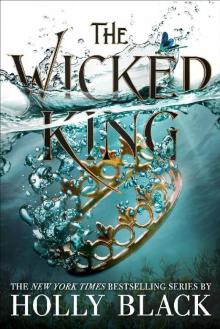 The Wicked King (The Folk of the Air #2)
The Wicked King (The Folk of the Air #2)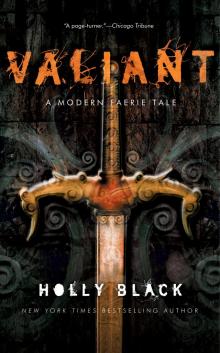 Valiant
Valiant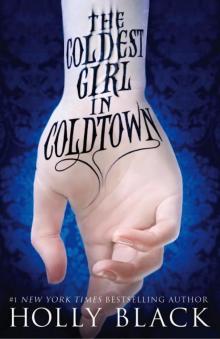 The Coldest Girl in Coldtown
The Coldest Girl in Coldtown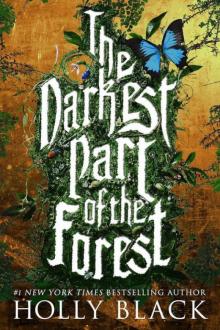 The Darkest Part of the Forest
The Darkest Part of the Forest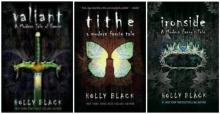 Tithe
Tithe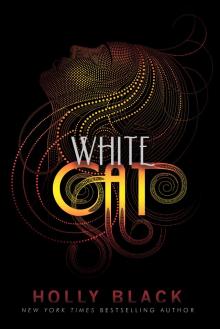 White Cat
White Cat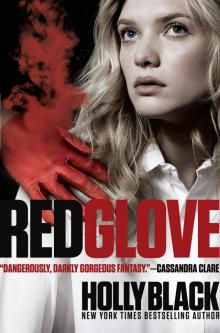 Red Glove
Red Glove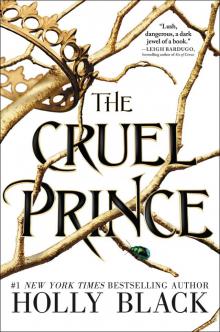 The Cruel Prince
The Cruel Prince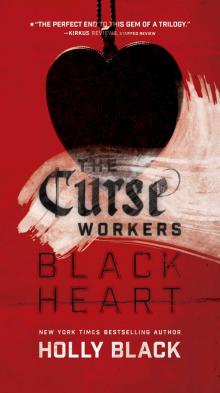 Black Heart
Black Heart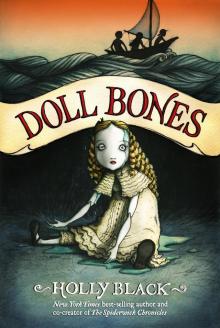 Doll Bones
Doll Bones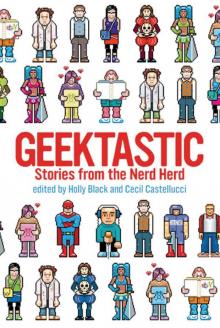 Geektastic: Stories from the Nerd Herd
Geektastic: Stories from the Nerd Herd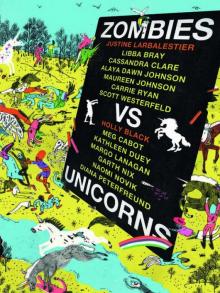 Zombies Vs. Unicorns
Zombies Vs. Unicorns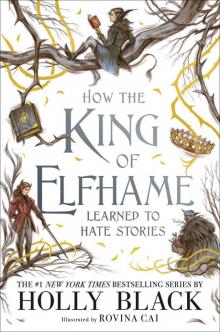 How the King of Elfhame Learned to Hate Stories
How the King of Elfhame Learned to Hate Stories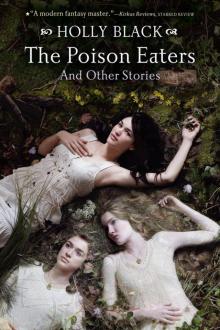 The Poison Eaters and Other Stories
The Poison Eaters and Other Stories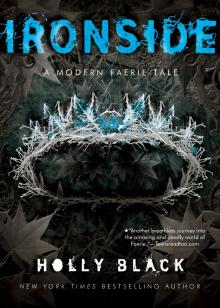 Ironside
Ironside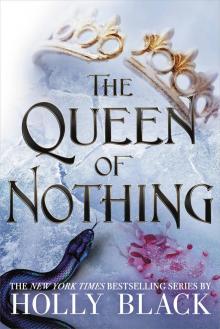 The Queen of Nothing
The Queen of Nothing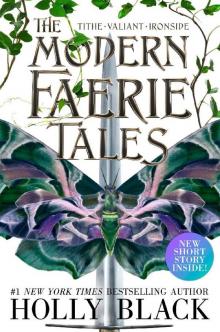 Modern Faerie Tales
Modern Faerie Tales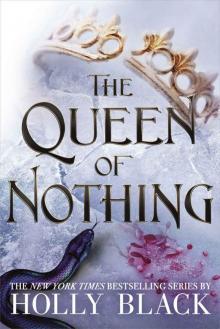 The Queen of Nothing (The Folk of the Air #3)
The Queen of Nothing (The Folk of the Air #3)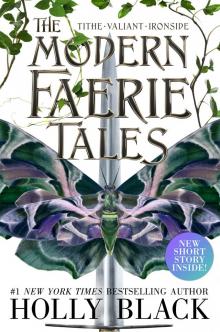 The Modern Faerie Tales
The Modern Faerie Tales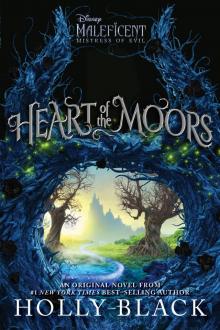 Heart of the Moors
Heart of the Moors The Golden Tower
The Golden Tower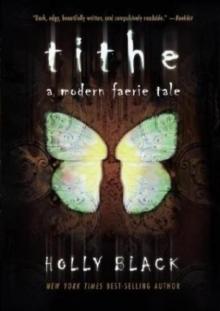 Tithe mtof-1
Tithe mtof-1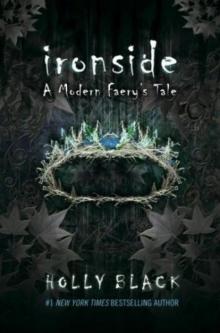 Ironside mtof-3
Ironside mtof-3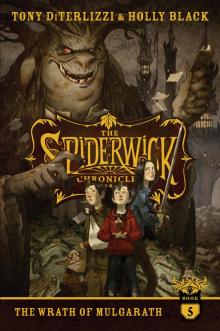 The Wrath of Mulgarath
The Wrath of Mulgarath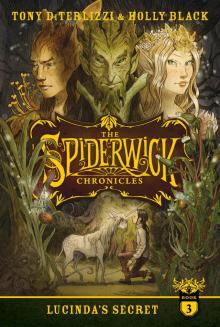 Lucinda's Secret
Lucinda's Secret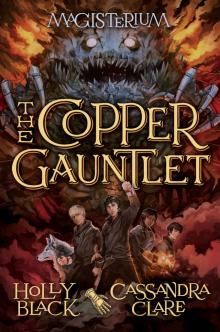 The Copper Gauntlet
The Copper Gauntlet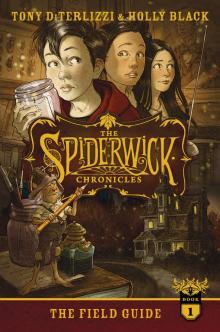 The Field Guide
The Field Guide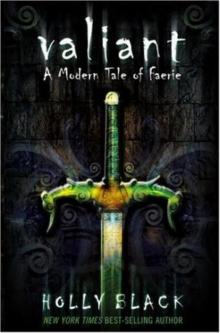 Valiant mtof-2
Valiant mtof-2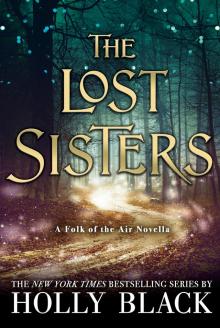 The Lost Sisters
The Lost Sisters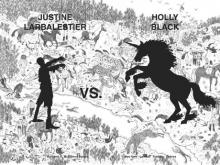 Zombies vs. Unicorns
Zombies vs. Unicorns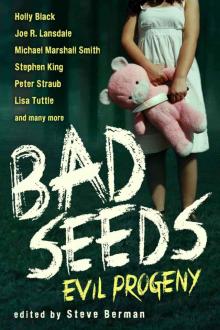 Bad Seeds: Evil Progeny
Bad Seeds: Evil Progeny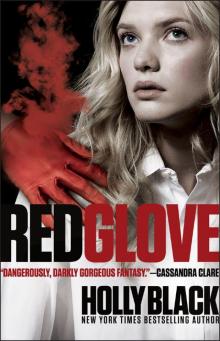 Red Glove (2)
Red Glove (2)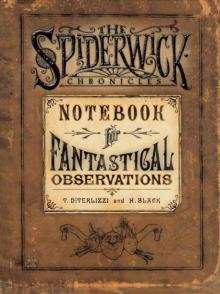 Notebook for Fantastical Observations
Notebook for Fantastical Observations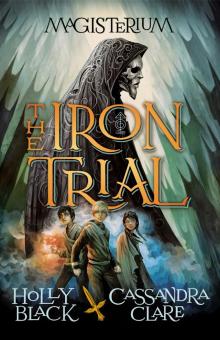 The Iron Trial
The Iron Trial Welcome to Bordertown
Welcome to Bordertown